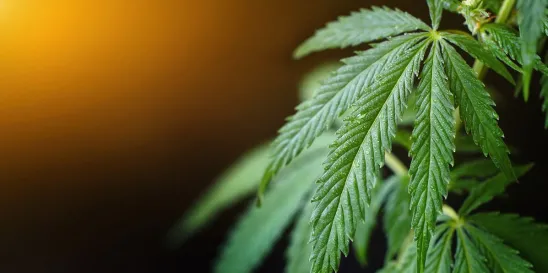As we’ve discussed, the federal government seems to be getting on board with the legal use of psychedelics. So are many states. While states across the country are moving towards expanding legal (or at least decriminalized) access to psychedelics, we doubt it will come as any surprise to those experienced in the cannabis industry that states in the West seem to be leading the charge.
Prime Time: Colorado and Oregon Lead the Charge
Colorado and Oregon have already legalized the use of certain psychedelics. Oregon was the first state to implement a legal system to obtain and use psilocybin. Oregon Psilocybin Services began accepting applications for licensure (manufacturing, laboratory, service centers, and facilitators) on January 2, 2023, and, according to its latest report, it had issued licenses to six service centers with expectations to issue “many more licenses over the coming months.” Once again at the forefront of legalization, Colorado voters passed a ballot measure – Proposition 122 – that would allow professionals to offer certain psychedelics starting in 2025.
California Dreamin’
California apparently does not intend to get left behind. Earlier this month, the California Legislature narrowly approved a bill to decriminalize the possession of a limited set of “naturally occurring psychedelics,” including psilocybin, DMT, and mescaline (excluding peyote). To be clear, the bill does not fully legalize the use of psychedelics. Instead, it means that police could not arrest people who are in possession of or use certain psychedelics. As we’ve seen with the federal government, the growing belief that psychedelics could help combat the growing mental health crisis seems to be an important motivation behind passing the legislation. To that end, the new bill will also trigger a regulatory process to craft policy proposals for group therapeutic use of psychedelics. Gov. Gavin Newsome has until October 14 to approve or veto the bill. If approved, it would go into effect January 1, 2025.
Hawaii to Research Allowing a Little Aloha
Demonstrating the wide breadth of approaches we can expect to see, Hawaii is taking another path, albeit with a similar goal to California. Hawaii’s Office of Wellness and Resilience recently announced the establishment of the Breakthrough Therapies Task Force, “which aims to assist [Hawaii] in expanding therapeutic access to two key substances: MDMT… and psilocybin.” The task force will address questions relating to supply, licensing for guides and integration coaches, administrative needs, safety, access, and affordability of care. The task force – which is comprised of local physicians, psychiatrists, mental health professionals, and government partners – met for the first time on August 29. Indicating his support for and the basis behind the initiative, the governor’s office specifically referenced the long history of the use of psychedelic plants by indigenous cultures, as well as the research that “has shown that both psilocybin and MDMT have significant and unprecedented efficacy in the clinical treatment of post-traumatic stress disorder (PTSD), addiction, end-of-life anxiety in terminal patients, eating disorders, treatment resistant depression, and more.” The task force will complete a final report by the end of 2023. We’re looking forward to seeing what they have to say.
What’s Next?
The moves by California and Hawaii deepen our beliefs that we are going to continue to see movement towards providing the American public with access to psychedelics for mental health purposes. And it looks like that’s what voters want. UC Berkeley’s psychedelics survey recently confirmed that “[t]he majority of voters are comfortable with psychedelic therapy being used to treat those suffering from terminal illnesses (80%), veterans (69%), and people suffering from treatment resistant depression and anxiety (67%),” though fewer (44%) are comfortable with “the open access to psychedelic therapy for a anyone over the age of 21.” Nearly half of those surveyed would support open access to psychedelic therapy.
A journey of a thousand miles begins with a single step, and the developments in these states represent important first steps. We have miles to go before we sleep, but if this budding trend continues, that sleep may be a little bit better in the future.





 />i
/>i
